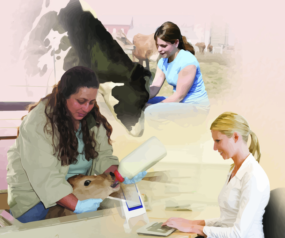American dairy products headed to Canada and Mexico could face stiffer tariffs – and ultimately reach fewer foreign customers – unless Congress repeals country of origin labeling (COOL) requirements for meat products that violate international trade rules, the National Milk Producers Federation (NMPF) and the U.S. Dairy Export Council (USDEC) said yesterday.
Under the World Trade Organization (WTO) ruling announced Monday, “Canada and Mexico are entitled to retaliate against U.S. exports, and that could well include higher tariffs on U.S. dairy products,” says Jim Mulhern, NMPF president and CEO. He notes that Canada has already indicated it will target the U.S. dairy industry, while Mexico retaliated against U.S. dairy products in a past NAFTA (North American Free Trade Agreement) finding against the U.S.
“America’s dairy farmers should not suffer collateral damage as a consequence of our COOL policy. The U.S. government needs to rectify this situation before we lose any export customers,” Mulhern says.
“Mexico is our largest export market, and Canada is also a significant destination for U.S. dairy products,” says Tom Suber, president of USDEC. “At a time of softer global dairy demand, we need to be focused on ensuring we keep exports moving and doing all we can to avoid new roadblocks from being put in our exporters’ paths.”
The WTO will finalize by the end of the month the recent decision faulting U.S. COOL requirements; after which, Canada and Mexico can formally request permission to retaliate against the U.S. Retaliation will be determined by how much the two countries can raise tariffs to address their losses under the U.S. meat-labeling requirement, which was first challenged by Canada and Mexico in 2009.
A panel will have 60 days to review the tariff amount, although the U.S., Canada and Mexico could discuss a settlement before the 60-day clock runs out. The U.S. could see retaliatory tariffs by late summer or fall.
NMPF and USDEC are among a long list of food and agriculture organizations supporting bipartisan legislation to head off retaliation by repealing COOL requirements enacted in 2002. HR 2393, introduced by House Agriculture Committee Chairman Michael Conaway (R-Texas), was scheduled for committee consideration yesterday.
Mulhern says NMPF will also be educating both House and Senate members to make sure they understand that dairy will likely be hurt if steps are not taken to bring the U.S. into compliance with the WTO rules.
“With U.S. farmers relying more and more on exports for income, we cannot allow the country of origin labeling issue to interfere with increased dairy trade in the hemisphere,” Mulhern says. PD
—From National Milk Producers Federation and U.S. Dairy Export Council news release





